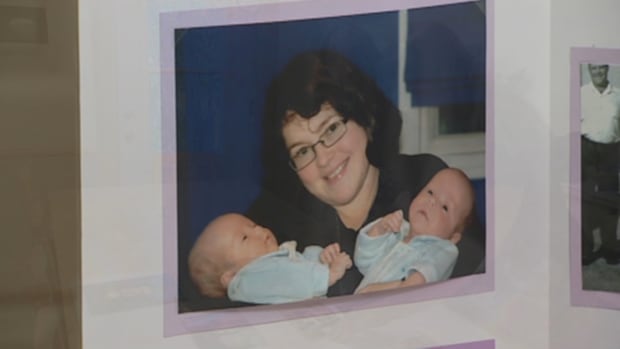Fredericton police say they have reopened an investigation into the 2008 homicide of a 43-year-old school teacher who was allegedly poisoned with mercury.
No charges were ever laid, and the Fredericton Police Force won’t say why it’s revisiting the case, which went cold in 2013.
In 2011 police identified and briefly arrested a 44-year-old man in connection with the death of Patricia Ann Kucerovsky, but he was later released unconditionally.
As of 2012, he remained the only suspect. Police would not confirm this week if that’s still the case but said a decision to reopen the investigation was made in June 2025.
“Our goal is to ensure that no case is forgotten, and that unsolved files continue to receive attention so opportunities to move them forward are not missed,” spokesperson Sonya Gilks said in an email.
Lori Haggerty, one of Kucerovsky’s sisters, said in an interview that the family believes the case is one of intimate partner violence. Spokesperson Megan Barker would not confirm whether police are treating it as such.
No one has ever been charged in connection with Kucerovsky’s death.
Haggerty said the decision opens wounds she’s been trying to heal from — in part, by walking across Canada to raise awareness about her sister’s story.

“I had kind of felt like I had found a way to cope with all of the emotion that came along with knowing that no one was ever going to be convicted of her murder,” she said.
“And so for them to turn around and say, ‘Oh, well, we’re going to reopen the case now 17 years after the fact,’ it was hard to hear…. There’s still that feeling of, well, why didn’t they do it 17 years ago? Why didn’t they protect us from the beginning?”
Haggerty believes the decision to reopen the investigation was “reactionary,” as the story gained more attention with her walk across Canada — meant to raise money for charities concerned with domestic violence and mental health.
Gilks said the Fredericton Police Force “regularly reviews unsolved major investigations” to see if there might be new information, technology or investigative techniques to move it forward.

“[The force] understands that revisiting an older investigation can be very painful for families, and we do not take that impact lightly,” she said in an email.
“We recognize the importance and value for those who choose to advocate for their loved ones and raise awareness in their own way, and we communicate directly with families throughout the process to provide updates and support.”
University of New Brunswick criminologist Mary Ann Campbell says reopening a cold case is not very common, noting the impact it can have on families and witnesses involved.
“You’re reopening a lot of wounds, a lot of disruption in the people’s lives who are still around that were impacted by that,” she said in an interview.

“You’re also going to be asking witnesses potentially new information for issues that they had put in the past, and maybe have moved on from. And so there’s a lot of lives that can be impacted by this.”
Revisiting a case doesn’t necessarily mean that police were wrong in their original conclusions, Campbell said.
“It just means they’re doing their due diligence to ensure that the investigation shouldn’t go in a different direction or whether they were on the right track to begin with with the original investigation,” she said.
Campbell said the most common reason to reopen an investigation is that new evidence has become available.
There also might be new technology available to police now that wouldn’t have been at the time of the crime, she said.
While Haggerty said the choice has brought up painful emotions, she would still like to see it result in a conviction.
“It’s hard not to have hope again, but it’s simultaneously really hard to have hope,” she said.
“Because we had that before, for a very long time.”







